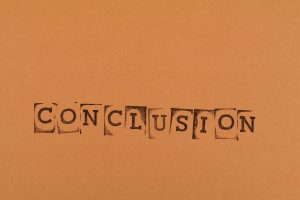Are Reverse Mortgages Right for Every Retiree?
If you’re approaching retirement and looking for ways to supplement your income, you’ve likely come across the option of a reverse mortgage. This type of loan allows homeowners over the age of 62 to convert a portion of their home’s equity into cash, with no required monthly payments. While it may seem like an appealing way to access money in retirement, it’s important to carefully consider whether or not a reverse mortgage is right for you. In this article, we’ll explore the pros and cons of reverse mortgages and help you determine if it’s the best choice for your retirement plan.
Understanding Reverse Mortgages
First, let’s define what a reverse mortgage is and how it works. Unlike a traditional mortgage where you make monthly payments to the lender, a reverse mortgage allows you to receive payments from the lender instead. This can be in the form of a lump sum, a line of credit, or fixed monthly payments. The amount you receive is based on factors such as your age, the value of your home, and current interest rates.
As long as you own and live in your home, you do not have to repay the loan. However, once you move out of the home or pass away, the loan becomes due, and your heirs are responsible for paying it back. If the home is sold, the proceeds will go toward repaying the loan, and any remaining equity will go to your heirs.
The Benefits of a Reverse Mortgage
Supplemental Income
The most significant advantage of a reverse mortgage is the potential for additional income in retirement. This can be especially beneficial for retirees who have limited savings and Social Security benefits. With a reverse mortgage, you can receive a lump sum or regular payments to help cover expenses such as medical bills, home repairs, or unexpected costs.
No Monthly Payments
Unlike a traditional mortgage, a reverse mortgage doesn’t require you to make monthly payments. This can be a huge relief for retirees on a fixed income and struggling to make ends meet. However, keep in mind that you are still responsible for property taxes, homeowner’s insurance, and maintenance costs for your home.
The Drawbacks of a Reverse Mortgage
High Fees and Interest Rates
One of the downsides of a reverse mortgage is the fees and interest rates associated with it. These loans often have higher closing costs, origination fees, and interest rates compared to traditional mortgages. These costs can significantly eat into the equity of your home, leaving less for your heirs when the loan is due.
Potential Loss of Home Equity
Another significant disadvantage of a reverse mortgage is that you are essentially borrowing against the equity in your home. As you receive payments from the lender, your equity decreases. This means that there may be less for your heirs to inherit when the loan is due. Additionally, if the value of your home decreases during the loan term, you may end up owing more than your home is worth.
Is a Reverse Mortgage Right for You?
Consider Your Long-Term Plans
Before deciding on a reverse mortgage, it’s essential to consider your long-term plans and goals. If you plan to stay in your home for the rest of your life and have no intention of leaving it to your heirs, then a reverse mortgage may be a suitable choice for you. However, if leaving a legacy for your loved ones is important to you, a reverse mortgage may not be the best option.
Explore Other Alternatives
It’s also crucial to explore other alternatives to a reverse mortgage. For instance, you could downsize to a smaller, more affordable home, or rent out a portion of your home for additional income. You could also explore other loan options, such as a home equity loan or line of credit. It’s essential to weigh all your options and choose the one that best fits your needs.
Seek Professional Advice
Finally, before making a decision on a reverse mortgage, it’s highly recommended that you seek the advice of a financial advisor or a HUD-approved housing counselor. These professionals can help you understand the pros and cons of a reverse mortgage and how it fits into your overall retirement plan.
Final Thoughts
In conclusion, a reverse mortgage can be a valuable tool for supplementing income in retirement, but it’s not the right choice for everyone. It’s important to thoroughly research and understand the pros and cons of this type of loan and how it aligns with your long-term plans. By considering all your options and seeking professional advice, you can make an informed decision that best fits your unique situation.










